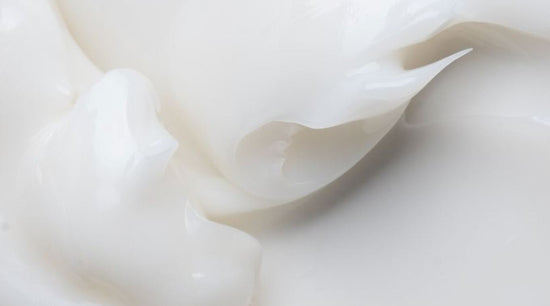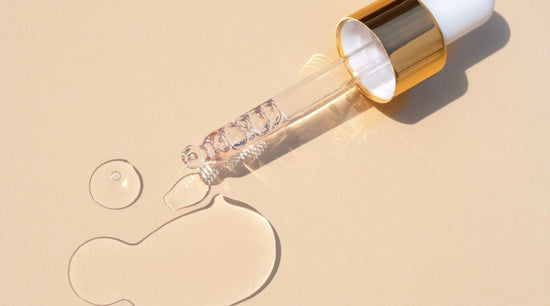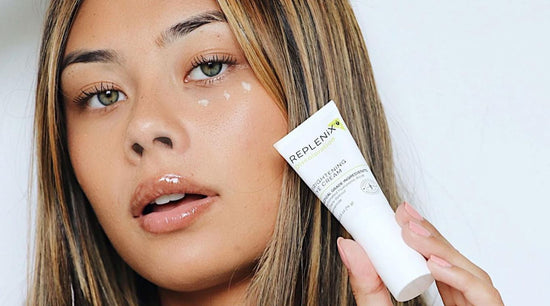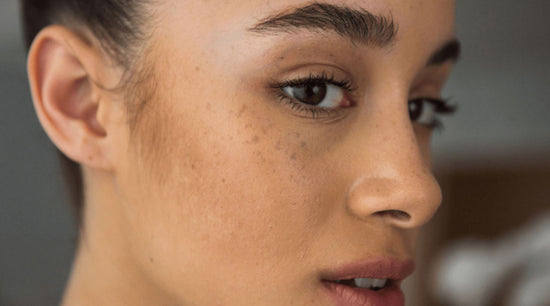

Introduction
Dark circles under the eyes can be caused by a variety of factors, including genetics, aging, lack of sleep, allergies, and dehydration. These pesky under-eye shadows can make you look tired and older than you are, even when well-rested. While some stubborn dark circles may be challenging to eliminate completely due to their underlying causes, there are several scientifically-backed and effective ways to minimize their unwanted appearance. With the right targeted treatments and lifestyle adjustments, you can help brighten and revitalize the delicate eye area for a refreshed, wide-awake look.
Table of Content
Common Causes Of Dark Circles
1. Genetics
Some people simply have a genetic predisposition to darker pigmentation under the eye area. This can be due to an excess production of melanin (the pigment that gives skin its color) concentrated around the eyes. Those with deeper skin tones are more prone to this type of hereditary darkening. The thin under-eye skin also lacks fatty tissues, allowing the blue-ish hues from underlying blood vessels to show through more prominently.
2. Lack of Sleep/Fatigue
When you don't get enough quality sleep, the skin under the eyes can take on a darkened bluish tint. Fatigue can cause the tiny blood vessels under the eyes to dilate and become more visible, creating that "shadowed" appearance. Lack of sleep also often results in dull, dehydrated skin that appears darker due to increased melanin clumping.
3. Allergies/Sinus Issues
People with allergies often experience darkening of the under-eye area. This is caused by congestion and inflammation of the sinus areas around the eyes, nose and cheeks. As blood pools there, it can cause skin discoloration, puffiness and shadows under the eyes. Chronic rubbing or itching around allergic eyes can also break down the skin's structure over time, furthering dark circle development.
4. Aging
As we get older, the skin around the eyes becomes thinner and loses elasticity. This allows the dark blood vessels beneath the surface to show through more visibly, creating a darker tint or shadowed look under the eyes. Additionally, the fatty tissue that once plumped up the under-eye area diminishes with age, resulting in a hollow effect that casts shadows and makes dark circles more apparent.
5. Sun Exposure
Excessive sun exposure can actually trigger an increase in melanin production, the same pigment that causes under-eye darkness when overproduced in that area. UV damage can thicken the skin and cause it to darken over time. This is especially true for the delicate under-eye area if not properly protected with SPF. Sun exposure also leads to faster breakdown of collagen and accelerates visible signs of aging like dark circles.
Lifestyle Habits To Improve Dark Circles
While topical treatments matter in the successful remediation of dark circles, make sure your overall health is on the right track too. Without taking care of your overall health, topical treatments won’t be as effective.
Get Adequate Sleep
Inadequate sleep can lead to the dilation of blood vessels under the eyes. This dilation allows more blood to flow through the vessels, resulting in a darker appearance. During sleep, the body also undergoes various processes for skin repair and regeneration. Inadequate sleep disrupts these processes, leading to a duller and less healthy-looking complexion. Ensure you get enough quality sleep each night. Aim for 7-9 hours of sleep to allow your body to rest and repair.
Drink Water, Stay Hydrated
When the body is not well-hydrated, the skin can become dry and lose its elasticity. The skin under the eyes is particularly thin and delicate, and dehydration can make it appear even thinner. Proper hydration is also essential for maintaining optimal blood circulation. Dehydration can slow down blood flow, leading to stagnant blood and a bluish tint under the eyes. Drink plenty of water to keep your body and skin hydrated.
Maintain A Healthy Diet
Deficiencies in important vitamins and minerals such as iron, vitamin k, vitamin c, antioxidants, and omega-3 fatty acids all contribute to skin health and can worsen dark circles. Also, over consumption of caffeine and high-sodium foods contribute to dehydration and fluid retention. Consume a balanced diet rich in vitamins and minerals. Include foods high in antioxidants, such as fruits and vegetables, to promote skin health.
Manage Allergies
Allergic reactions often lead to nasal congestion and increased blood flow to the nasal area. This congestion can cause blood vessels under the eyes to dilate, making them more visible and resulting in a darker appearance. If allergies are a persistent issue and are significantly impacting the appearance of dark circles, consult with an allergist or healthcare professional.
The Best Ingredients for Treating Dark Circles
Vitamin C
Vitamin C is a potent antioxidant that inhibits the overproduction of melanin pigment, which is a major contributing factor to discoloration and dark circles under the eyes. Its brightening properties help fade and even out skin tone in the area.
Additionally, vitamin C strengthens capillary walls, preventing them from showing through the very thin skin under the eyes. This reduces the bluish-purple tint that dilated blood vessels can cause.
Vitamin C also provides photoprotection by neutralizing free radicals from UV exposure, which can thicken and darken the under-eye area over time. It helps maintain an even, bright complexion when used regularly.
Vitamin K
This vitamin plays a key role in aiding blood coagulation and preventing that pooling or buildup of blood under the eyes. Vitamin K constricts the dilated vessels and capillaries that create shadowy, discolored areas. It improves microcirculation in the under-eye area, minimizing that darkened, almost bruise-like appearance caused by slowed blood flow.
Vitamin K supports a strong vascular system by regulating blood clotting proteins. This ensures good circulation and prevents blood from becoming trapped and stagnant, which leads to darkness under the eyes. It's a circulatory superstar for the eye area.
Peptides
Certain peptides like acetyl tetrapeptide-5 and acetyl hexapeptide-8 inhibit the production of circadian pigment, preventing melanin clumping and discoloration under the eyes from happening in the first place. Over time, they can fade and brighten existing areas of under-eye darkness and pigmentation.
Peptides deliver both immediate and long-term results by interfering with skin's melanogenesis process at various points. They disrupt pigment synthesis on a deeper level to achieve lasting brightness under the eyes.
Retinoids
Retinoids increase cell turnover and slough off pigmented surface cells, gradually fading areas of discoloration and dark circles. They also thicken the dermis, preventing underlying blood vessels from visibly showing through the delicate under-eye skin.
Retinoids stimulate collagen and elastin production to firm, plump and strengthen the area so it doesn't appear as hollowed or thin, which makes dark circles look worse. As vitamin A derivatives, retinoids optimize skin's renewal process to minimize discoloration over time. They're a multi-tasking powerhouse for dark circle correction.
Niacinamide
Niacinamide, a form of vitamin B3, can effectively treat dark circles around the eyes due to its anti-inflammatory properties that reduce puffiness and inflammation, which contribute to the darkening of the skin in that area. It strengthens the skin's barrier function, preventing moisture loss and protecting the delicate eye area from environmental stressors that can exacerbate dark circles.
Niacinamide inhibits melanin transfer, helping to reduce hyperpigmentation and uneven skin tone, including dark circles. Additionally, it improves microcirculation in the eye area, addressing dark circles caused by poor blood circulation or thin skin. With its antioxidant properties, niacinamide neutralizes free radicals and protects the skin from oxidative stress, another factor in the formation of dark circles.
Caffeine
As a vasoconstrictor, caffeine helps constrict the blood vessels under the eyes to reduce puffiness, swelling and that blue-ish tint from enlarged veins and capillaries showing through. It also has anti-inflammatory effects to calm under-eye swelling, and antioxidant properties that inhibit pigment production responsible for discoloration.
Caffeine energizes and helps drain excess fluid, depuffing the entire eye area. It creates a bright, wide-awake look by minimizing shadows, pigmentation and bags all at once.
SPF
Eye creams containing SPF can help reduce the appearance of dark circles by preventing further darkening and discoloration caused by sun exposure. Sun damage can cause the skin to produce more melanin, leading to hyperpigmentation and worsening of existing dark circles. SPF products create a protective barrier that blocks harmful UV rays from penetrating the skin and triggering this process.
Additionally, sun exposure can accelerate the breakdown of collagen and elastin, which can thin the delicate skin around the eyes, making dark circles more pronounced. SPF helps prevent this premature aging by shielding the skin from damaging UV radiation.
Best-Selling Eye Treatments For Dark Circles
Eye Treatments For Dark Circles Under $65
Staff Pick Eye Treatments For Dark Circles
Additional Remedies For Dark Circles
Cold Compresses
Apply a cold compress or chilled cucumber slices to the eyes for about 15 minutes. This can help reduce puffiness and constrict blood vessels.
Concealers
Use a good-quality concealer to cover up dark circles temporarily. Choose a shade that matches your skin tone and has a creamy texture, and using a peach or orange-toned concealer before applying your regular concealer can neutralize the bluish or brownish undertones of dark circles.
Dermal Fillers
In some cases, dermal fillers containing hyaluronic acid can be injected to plump up the under-eye area, reducing the appearance of dark circles. This procedure should be performed by a qualified and experienced medical professional.
Laser Therapy
Laser treatments can target pigmentation and stimulate collagen production. Again, consulting with a dermatologist is crucial to determine the most suitable laser treatment for your specific needs.
Conclusion
Dark circles are one of the most common issues in skincare but are treatable with the correct regimen. Ensuring holistic health practices, coupled with a diligent eye cream regimen applied twice daily, can significantly mitigate their appearance. Remember that results may vary from person to person, and it's essential to address the underlying causes for the best outcomes. If you have persistent or severe dark circles, consult with a healthcare professional or dermatologist for a comprehensive evaluation and tailored treatment plan.
Lastly, consider that while targeted treatments and lifestyle adjustments play pivotal roles, understanding the interplay between skincare and overall health is essential. Prioritizing adequate hydration, nourishing foods, and sufficient sleep not only benefits your skin but also contributes to your overall well-being. Additionally, integrating stress-management techniques into your daily routine can further enhance the efficacy of your skincare efforts. By nurturing your body and mind, you cultivate an environment conducive to skin health, thereby enhancing the effectiveness of dark circle remedies.

Frequently Asked Questions
Do home remedies like cucumber slices or tea bags really work for dark circles?
Some home remedies, like cucumber slices or tea bags, can provide temporary relief from dark circles due to their cooling and anti-inflammatory properties. However, they are not a long-term solution and may not address the underlying causes of dark circles.
Are dark circles hereditary?
Yes, dark circles can be hereditary. Some people are more genetically predisposed to having darker pigmentation or thinner skin around the eye area, which can contribute to the appearance of dark circles.
Can lack of sleep really cause dark circles?
Yes, lack of sleep can definitely cause dark circles. When you don't get enough sleep, the skin around the eyes can become dull and pale, making the dark circles more noticeable. Fatigue can also cause fluid buildup under the eyes, contributing to puffiness and shadows.
How do I choose the right eye cream for dark circles?
When choosing an eye cream for dark circles, look for products containing ingredients like vitamin C, retinol, niacinamide, or caffeine. These can help brighten the area, reduce puffiness, and improve circulation. Additionally, consider your skin type and choose a formula that is suitable for the delicate eye area.
Can allergies contribute to dark circles?
Yes, allergies can contribute to dark circles. Allergic reactions can cause inflammation and fluid retention around the eyes, leading to the appearance of dark circles or puffiness.
How long does it take to see results from dark circle treatments?
The time it takes to see results from dark circle treatments can vary depending on the severity of the issue and the products or treatments used. Generally, you may start to notice some improvement within 4-8 weeks of consistent use, but more significant results may take longer.
Are there any medical treatments available for severe dark circles?
For severe or persistent dark circles, medical treatments like chemical peels, laser therapy, or injectable fillers may be recommended by a dermatologist or plastic surgeon. These can help address underlying issues like hyperpigmentation or volume loss.
Related Readings
- Choosing a selection results in a full page refresh.












